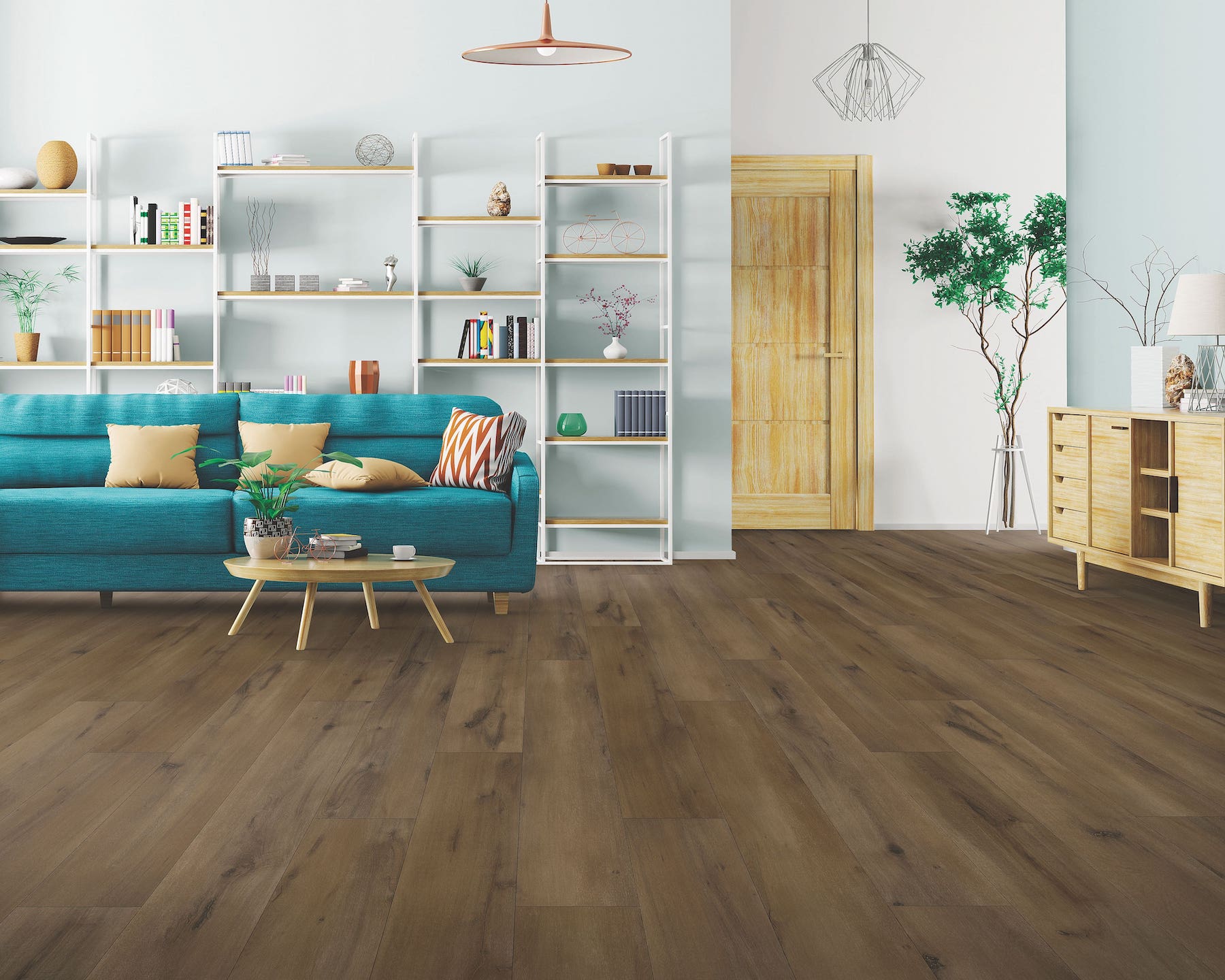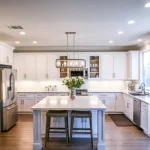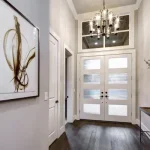
Comparing Flooring Types: Luxury Vinyl, Hardwood, and Engineered Wood
Choosing the right flooring for your home is a significant decision that involves factors like style, durability, and budget. Among the plethora of flooring options available, luxury vinyl, hardwood, and engineered wood are popular choices. In this blog, we’ll compare these three flooring types to help you make an informed decision.
Luxury Vinyl Flooring
Luxury vinyl flooring (LVF) has gained immense popularity in recent years due to its versatility and affordability. Here’s what you need to know about it:
1. Aesthetic Appeal: LVF comes in a wide range of designs, including wood, stone, and tile replicas. The high-quality printing technology used creates a realistic appearance that can be nearly indistinguishable from the real thing.
2. Durability: LVF is known for its durability. It’s resistant to scratches, stains, and moisture, making it suitable for high-traffic areas and moisture-prone spaces like kitchens and bathrooms.
3. Comfort and Resilience: Unlike hardwood, LVF is softer underfoot and provides a bit of cushioning. It also has excellent sound-absorbing properties, reducing noise in your home.
4. Easy Maintenance: Cleaning LVF is a breeze ? a regular sweep and occasional damp mop are all it takes to keep it looking pristine.
Hardwood Flooring
Hardwood flooring has a timeless appeal and adds a touch of elegance to any space. Here are some key features of hardwood:
1. Natural Beauty: Hardwood’s genuine, warm, and inviting look is its standout feature. It adds character and value to your home.
2. Longevity: Well-maintained hardwood floors can last for generations, making them an excellent investment.
3. Refinishing: If your hardwood floors start showing signs of wear, you can sand and refinish them to restore their original beauty.
4. Vulnerability to Moisture: Hardwood is susceptible to moisture damage, so it’s not suitable for areas with high humidity, like bathrooms.
Engineered Wood Flooring
Engineered wood flooring is a versatile alternative to traditional hardwood. Here’s what you should know:
1. Stability: Engineered wood consists of layers of wood stacked in opposing directions, making it more stable than solid hardwood. This means it’s less prone to warping or cupping due to changes in humidity.
2. Aesthetic Variety: Like hardwood, engineered wood comes in various wood species and finishes, allowing you to find the perfect match for your style.
3. Moisture Resistance: While not as susceptible to moisture as solid hardwood, engineered wood can still be damaged by excessive water exposure. However, it’s more suitable for areas with controlled humidity levels.
4. Installation: Engineered wood can often be installed as a floating floor, making it a DIY-friendly option.
Choosing the Right Flooring for You
When it comes to comparing these three flooring types, your decision should be based on your specific needs and preferences. Here are some factors to consider:
- Budget: Luxury vinyl is typically the most budget-friendly option, followed by engineered wood and then solid hardwood.
- Aesthetic Preference: Do you prefer the natural beauty of hardwood, the versatility of luxury vinyl, or the balance of engineered wood?
- Durability: If you need a highly durable option for high-traffic areas or moisture-prone spaces, luxury vinyl may be your best choice.
- Installation: Consider whether you want to hire professionals or take on a DIY project. Luxury vinyl and engineered wood are often easier to install than hardwood.
In conclusion, the choice between luxury vinyl, hardwood, and engineered wood flooring depends on your unique circumstances and style preferences. Each option has its own set of advantages, so weigh them carefully before making your decision.
Let us help you make the right decision! Contact us or stop by one of our showrooms today!?





